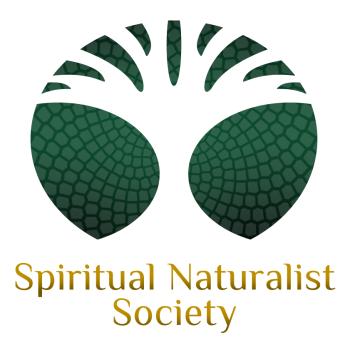 Telling Our Stories
Telling Our Stories
Each of us has our own story about how we came to spiritual naturalism. For some, myself included, our previous supernatural worldview collapsed, and we read and reasoned our way to spiritual naturalism in some shape or form.
For others, spiritual naturalism has always been their worldview, and they’ve refined and developed their spirituality over time.
I think each person’s story is fascinating. I invite our members to share those stories with us, maybe by writing an article. The following is my take on spiritual naturalism.
How I See Spiritual Naturalism
I see spiritual naturalism as a worldview that combines a naturalistic understanding of the universe with an appreciation for spirituality and the sacred. It is a way of looking at the world that acknowledges the beauty and wonder of nature and the universe while rejecting supernatural beliefs. It relies on reason, science, and evidence-based thinking to understand the world and our place in it.
At its core, spiritual naturalism emphasizes the importance of living in harmony with the natural world and recognizes the interconnectedness of all things. It celebrates the diversity of life and encourages individuals to treat all living beings with respect and compassion.
My approach to spiritual naturalism is not as a specific religion, although it could develop into something more systematic. Instead, it is a general philosophical framework that can be applied to various spiritual and religious traditions.
One of the critical principles of spiritual naturalism is the rejection of supernaturalism. This means spiritual naturalists do not believe in gods, spirits, or other supernatural entities. Instead, they view the world as a natural phenomenon that can be understood and explained through science and reason.
Some of us have retained the idea of god as a metaphor or impersonal, unifying force, while others have put the entire concept aside.
Core Ideas of Spiritual Naturalism
I’d use the seven points below if asked to summarize spiritual naturalism or explain its main ideas. This list isn’t exhaustive or complete by any means.
- An emphasis on the natural world: Spiritual naturalism emphasizes the importance of the natural world and its beauty and wonder. It sees the natural world as a source of inspiration and meaning and encourages people to connect with nature and appreciate its intricacies and complexities.
- The rejection of supernaturalism: As mentioned earlier, spiritual naturalism rejects the idea of supernaturalism. It sees the universe as a natural phenomenon that can be understood and explained through science and reason and doesn’t believe in gods, spirits, or other supernatural entities.
- Understanding spirituality existentially: If there are no spirits, then why use the term spirituality? Many of us have retained the word and use it to describe various emotions, reactions, and attitudes, such as wonder, gratitude, joy, love, and awe. In this sense, spirituality concerns the arena of human meaning and core issues of purpose and being alive.
- Interconnectedness: Spiritual naturalism recognizes the interconnectedness of all things. It sees everything in the universe as connected and interdependent and recognizes that our actions and choices impact the world around us. This includes our actions’ impact on other people, other living beings, and the natural environment.
- Ethics and morality: Many spiritual naturalists believe we have a responsibility to live in a way consistent with our values, and that promotes the greater good. We don’t believe morality as something given by a god but rather as a reasoned reflection on human flourishing. This includes treating others with kindness and compassion and taking care of the natural environment and other living beings.
- Diversity of practices: There is no “right” way to practice spiritual naturalism. Different individuals may practice it differently, depending on their beliefs and values. Some may focus more on meditation and mindfulness, while others focus on environmental activism or social justice work.
- Connection to science: Spiritual naturalism values science and evidence-based thinking. It sees science as a way of understanding the natural world and believes that scientific discoveries can deepen our understanding of the universe and our place in it.
Personal Spiritual Practice
Spiritual naturalism can be practiced in many different ways. Some spiritual naturalists engage in meditation, mindfulness practices, or other contemplative practices to deepen their understanding of themselves and the world around them.
Many of us have created our own rituals to celebrate or mark occasions. These practices often involve poetry, music, symbolic gestures, and connecting us to nature, and may be done solitarily or with a group.
For some, time spent in nature plays a significant role in their spirituality. Emotions and feelings of awe and connectedness often happen when out in the wild world, on a beach, in a forest, or on the mountains – nature in all its forms is spiritually evocative.
Others may engage in social or environmental activism, using their spiritual beliefs as a source of motivation and inspiration to make positive changes in the world.
In terms of celebration, while there are no official holidays associated with spiritual naturalism, many spiritual naturalists may observe or celebrate certain natural phenomena or events that hold spiritual significance for them.
Many spiritual naturalists celebrate the equinoxes and solstices and mark the changing of the seasons. Others include the Celtic cross-quarter days as well.
These events can hold spiritual significance for those who see them as a reminder of the interconnectedness of all things and as a way of connecting with the cycles of nature and the rhythms of the natural world.
How Do You Understand Spiritual Naturalism?
The above begins to outline how I see spiritual naturalism. How about you? What does your version of spiritual naturalism look like? What practices do you engage or holidays do you celebrate?
















